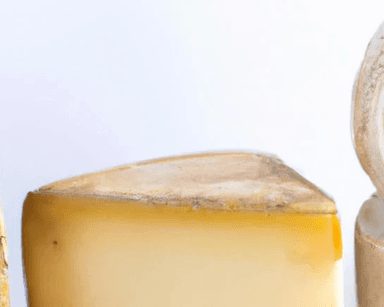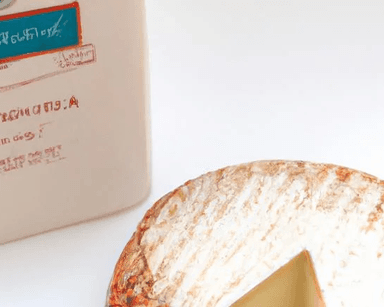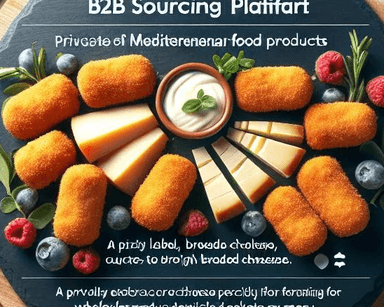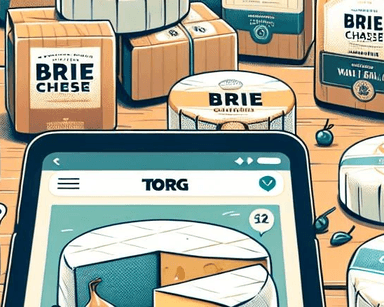What are Feta-Type Cheese packaging options?
Feta-Type Cheese is commonly available in various packaging options, including vacuum-sealed packs, plastic tubs, and jars. These packaging solutions cater to different market needs, from wholesale and private label opportunities to retail-ready options. In the b2b sourcing of Feta-Type Cheese, customized packaging can also be arranged to meet specific branding or logistical requirements. Buyers can collaborate with suppliers to choose packaging that maintains freshness and meets their trade demands, whether they are selling in bulk or offering unique products in niche markets.
What are the top Feta-Type Cheese producing countries?
The leading countries known for producing Feta-Type Cheese include Greece, Germany, Cyprus, and Italy. These countries are renowned for their rich tradition in cheese-making, and they offer a variety of options for buyers seeking high-quality Feta-Type Cheese. Whether you're sourcing from top Feta-Type Cheese manufacturers or searching for exclusive suppliers in Europe, these nations provide an array of choices. For b2b markets, particularly in the Mediterranean region, partnering with well-established suppliers from these countries ensures premium quality and authentic flavor.
What are the top certificates for Feta-Type Cheese?
When choosing Feta-Type Cheese suppliers, top certifications to look for include GACC, BRCGS, FSSC 22000, and IFS. These certifications guarantee that the cheese meets high standards in food safety and quality management, which is critical for ensuring product integrity in wholesale and b2b sourcing. Certified Feta-Type Cheese producers often provide assurance of compliance with international regulations, making it a reliable choice for businesses looking to sell or distribute cheese globally. Partnering with certified suppliers can enhance trust and credibility in the b2b marketplace.
What are the top Feta-Type Cheese trends in 2025?
The Feta-Type Cheese market is witnessing several evolving trends, including a rising demand for organic and vegan options. Consumers are increasingly interested in healthier and premium cheese products. Thus, suppliers are offering more organic Feta-Type Cheeses and experimenting with vegan-friendly alternatives. Additionally, there's a surge in bulk production to cater to foodservice and retail sectors, showcasing the adaptability of many manufacturers. As businesses seek out innovative and sustainable Feta-Type Cheese options from Europe and beyond, staying attuned to these trends is vital for maintaining competitive advantage.
What are Feta-Type Cheese minimum order quantities (MOQ)?
In Feta-Type Cheese production, minimum order quantities (MOQ) can vary depending on the type of agreement. For branded cheeses, the MOQ generally ranges between 500 to 1500 kg, which suits many retail and wholesale operations. However, for private label arrangements, production volumes can range from 100,000 to 300,000 units, ideal for large distributors seeking to establish their own line. These MOQs can align with the needs of diverse b2b buyers looking to source Feta-Type Cheese, providing flexibility in procurement planning and execution through Torg's marketplace.
Who are the best suppliers for private label Feta-Type Cheese in Europe?
The best private label Feta-Type Cheese suppliers in Europe include vivartia, Kolb-Lena Inc., Div. of Savencia Cheese, REHA SUT URUNLERI SAN.LTD. and Elcor S.A.. These Feta-Type Cheese companies are known for their premium Feta-Type Cheese, flexible private label services, and efficient production, meeting the growing demand for high-quality, customizable Feta-Type Cheese products.
What are the top Feta-Type Cheese trade shows?
Key trade shows focusing on Feta-Type Cheese include events like Anuga in Germany and Alimentaria in Spain. These exhibitions are excellent platforms for b2b buyers to connect with Feta-Type Cheese suppliers, discover new products, and explore trends. Participating in these trade shows allows businesses to network with certified Feta-Type Cheese producers who hold prestigious certifications such as BRCGS and FSSC 22000. It's an opportunity to source cheese from leading countries like Greece and Cyprus, and to gain insights into the latest market developments and innovations.
















